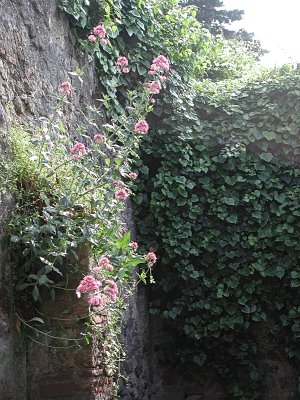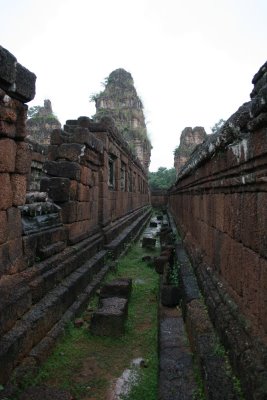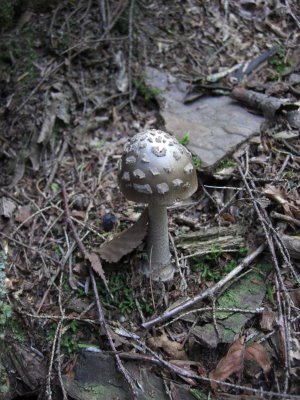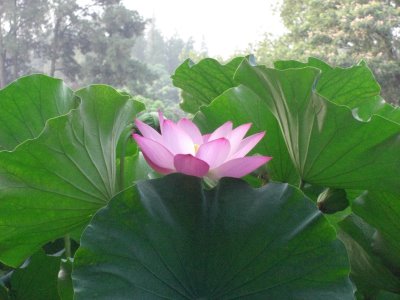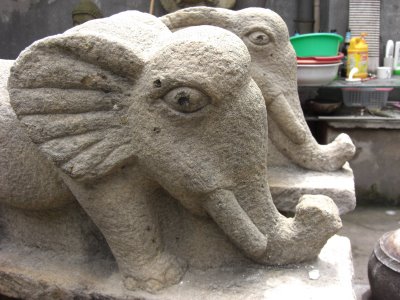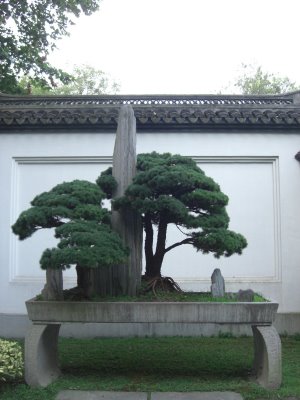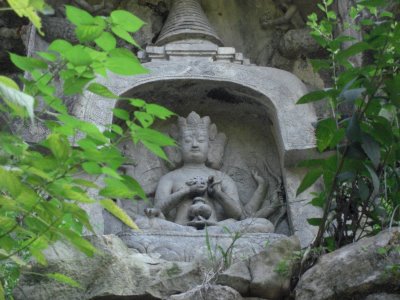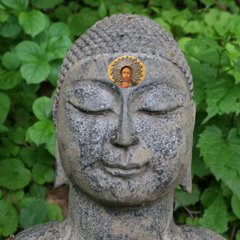This week, they announced the find of a huge new diamond in Lesotho.
The gem got me to thinking about the nature of carbon. (Please don't think that I am about to embark on a discussion of the chemical factory when I say that. I am drawing an analogy from a very different angle today.)
As profoundly illogical as it seems to the eye, diamonds are a form of carbon. It's astonishing to me that this (usually) opaque, gritty black substance that forms the basis of organic life can, under enough pressure, become such a remarkably hard and utterly transparent substance.
The diamond may be extraordinary and beautiful, but in undergoing its transformation -- which involves incredible heat and pressure at a rather specific depth in the mantle of the earth --it sacrifices everything that makes carbon valuable on the surface of the planet. In this regard, it's somewhat like gold--which Gurdjieff pointed out is extremely dense, and worthless in terms of its ability to interact with other substances. (Human beings have a perverse tendency to value things more for how they look than what they can actually do. If--like ants and bees- we sensed the world mostly through smell and touch, gold and diamonds would be totally uninteresting to us.)
Carbon plays a central role in organic chemistry because of its structure and its unique ability to form many different kinds of bonds with many other elements. Organic life as we know it could not exist without it. It has been said that biology is based so solidly on a carbon foundation that if we discovered organic life in Betelgeuse, it would function chemically in very much the same way earth's does. (See Simon Conway Morris' "Life's solutions" for cogent arguments about why the physical morphology of life on other planets similar to earth would probably also be very much the same.) Biologists have tried to posit life based on other elements, such as silicon, but they present nearly insurmountable problems that would almost certainly prevent the type of diversity we see in organic life on Earth.
In becoming "perfect" in diamond form, carbon sacrifices countless possibilities for relationship. It is beautiful, but it no longer fills the gritty, incredibly creative role that it has in its ordinary state.
The relationship between carbon in its ordinary and its diamond form reminds me of intellect. We value intellect; we prize it. the development of Western culture is, above all, a development of the intellect. The difficulty here is that the intellect is developed largely at the expense of relationship.
We see this happen again and again around us. The entire subprime mortgage crisis was created by the intellect. The smartest guys out there: the Harvard MBAs, the geniuses, the movers and shakers -- these are the very people who engineered the greatest (and perhaps stupidest) act of financial destruction in history.
They were too damn smart. They forgot that reality consists of relationships: emotional and physical realities. Human beings, living in houses and paying their bills. Everything became numbers on paper. Everything was theoretical.
Even though it's important to have a good intellect in the Gurdjieff work -- or any spiritual work, for that matter -- intellect is the Achilles' heel. The Gurdjieff work in particular attracts intelligent people, and to a certainty they are well suited for it, but the smartest people are most at risk of interpreting everything through their intellect, of trying to evaluate and discover themselves through intelligence alone.
I know a good deal about this habit, because I am a fairly intelligent man, and I love to use my intellect to interpret things. I cling to it. I polish it, I exercise it, I show it off to people. I have a lot of friends that are very much like this; some of them read this blog. (And some of them are smarter than I am, no doubt about it.)
The problem here is that none of us are really all that "smart," because smart does not consist of being able to compress and polish the intelligence until it shines like a diamond. That's mostly what we smart people try to do, and it's mostly wrong.
There is a point at which it would be helpful to us smart people to get stupid. When I say "get stupid," I mean, lose the intellect. Give it up. We need to rediscover ourselves through our emotional state and our physical state, and ask the intellect to take a back seat for a while. The domination of the intellect -- what Zen masters have called the "discrimination of the conceptual mind" -- is perhaps our greatest enemy.
An intellect that isn't in relationship to the other parts of man sacrifices its ability to form many necessary chemicals. Like a diamond, it looks amazing, it reflects light beautifully, it is tough, and even worthy of immense respect. Nonetheless, all of the flexibility it could have had is gone. And how many times do we see ourselves -- and others -- go down, go down hard based on a set of inflexible intellectual premises? I'm sure there are any number of world financial gurus and leaders asking themselves that very question right now. In the absence of other influences, the more an intellect develops, the more rigid it becomes. When Gurdjieff used the phrase "wrong crystallization," he was probably referring to this tendency to become more and more rigid, losing the ability to interact flexibly with our lives.
Increasingly, we need to begin to discard our intellectual premises. If we want to use our intellect, we need to use it from the ground up, not the top down. The ground floor of intellect is the gritty place where all the little grains of intelligence are black, and each one of them retains a unique and extraordinary ability to relate through a sense of touch to the billions of different events that we encounter in the course of even a single ordinary day. Each one of those little tiny bits of intellect has the opportunity to form bonds with little tiny bits of emotion and little tiny bits of moving center, so that's something living can grow within us.
The diamond mind... as magnificent as it is... can't do that.
May your roots find water, and your leaves know sun.


